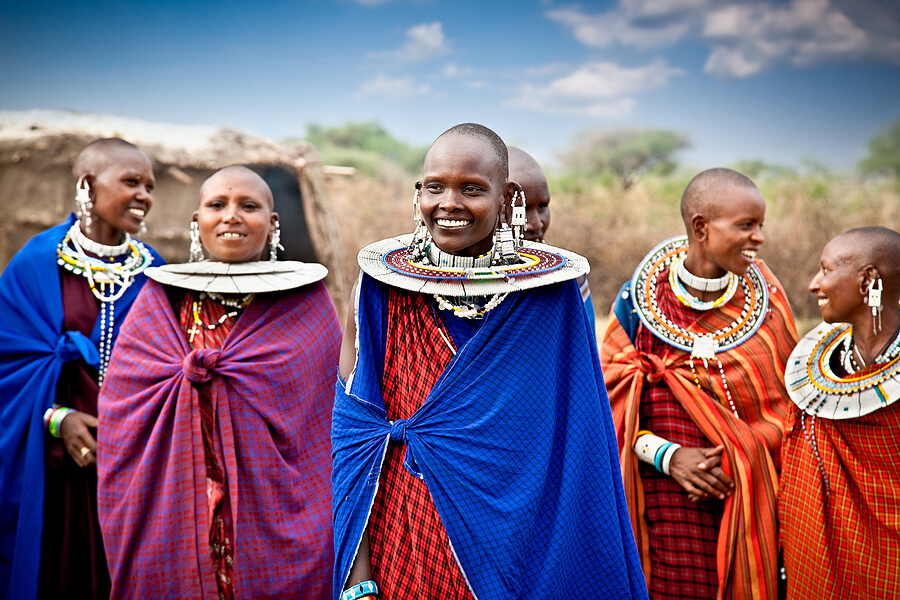Africa is a continent that bursts with diversity, from its landscapes to its languages and, most enchantingly, its cultural traditions. Venturing into this vast land offers more than just scenic vistas and wildlife; it immerses you in a world where every ritual, dance, and meal is steeped in history and meaning. This article explores some of the most unique cultural experiences you can enjoy across Africa, each offering a window into the soul of its people and the rhythms of life that have echoed through generations. From bustling markets filled with artisan crafts to ancient festivals and soulful musical performances, join us on a journey through the rich cultural tapestry that makes Africa genuinely mesmerizing.

Vibrant Markets as Cultural Hubs
Exploring Africa’s myriad cultures offers a journey into some of the most vibrant and diverse traditions found anywhere in the world. From music and dance to food and festivals, each region presents its unique flavor of cultural experience that beckons travelers looking for more than just tourist spots. One of the most captivating ways to delve into African cultures is through their local markets. Imagine walking through a bustling market in Marrakech, Morocco. The air is fragrant with spices — saffron, cumin, and cinnamon — each stalls a riot of colors with hand-woven carpets and intricate pottery. These markets aren’t just places to shop; they are the pulsating heart of daily life, a place to haggle and chat, to meet friends and exchange news. They offer a snapshot of a place’s social and economic dynamics and are a direct line into the heart of its culture.
Festivals and Holidays
Further enriching the cultural landscape of Africa are the numerous festivals and holidays, each with its origin and significance. Cultural holidays in Egypt provide a prime example of this rich tradition. One of the most significant among them is Sham el-Nessim, an ancient festival dating back to Pharaonic times, marking spring’s beginning. This day is celebrated by all Egyptians regardless of religion, highlighting the unifying elements of cultural festivities. Families spend the day outdoors, enjoying picnics with traditional foods like salted fish, onions, and eggs. The festival celebrates the season and reflects Egypt’s deep-rooted connection to its history and the natural world.
Music and Dance: The Soul of Africa
Transitioning from the sensory overload of the markets, African music and dance offer another uniquely immersive cultural experience. In countries like Mali, the traditional sounds of the kora (a harp-like instrument) tell tales of ancient history, sung by griots who have passed these stories down through generations. Meanwhile, the energetic dances of the Zulu in South Africa, often performed with large drums, speak of a profoundly rhythmic connection to the Earth and its ancestors. Attending a live performance can be a transformative experience, demonstrating the vitality and emotion of African heritage.
Culinary Journeys Across the Continent
Food also plays a significant role in the cultural fabric of African societies. Each region’s cuisine reflects its history, environment, and beliefs. In Ethiopia, for example, eating from a shared platter builds a sense of community and friendship, central to social customs across the continent. Sharing a meal transcends just eating and becomes a gesture of kinship and respect. Dishes like injera (a sourdough flatbread) and doro wat (a spicy chicken stew) are delicious and steeped in stories and traditions that offer deeper insights into the local culture.
Symbols of Identity and Pride
Moreover, traveling through Africa allows one to witness the profound cultural significance of traditional dress, which varies dramatically from one country to another. In Nigeria, brightly colored boubous and gele (headwraps) make a striking fashion statement and symbolize status and community identity. The materials, colors, and patterns used in traditional clothing across Africa are not arbitrary; they are chosen for their symbolic meanings and local significance, offering insights into the values and aesthetics of the community.
Engaging Respectfully with Local Cultures
While exploring these cultures, it’s crucial to approach with respect and openness. Participating in a local village’s traditions, asking questions about their practices, and showing genuine interest in their ways of life can enrich your travels. Engaging with locals through their customs allows you to see the world through their eyes, adding depth and authenticity to your experience. By sharing stories and partaking in their daily activities, you gain insight and contribute to preserving these traditions for future generations. This interaction not only fosters a greater understanding of the diversity within Africa but also supports local economies and promotes sustainable tourism practices, creating a positive impact for visitors and host communities.
Conclusion
Africa’s cultural richness is as vast as the continent itself. Each visit brings new knowledge, beauty, and understanding of this dynamic part of the world. Whether through the rhythmic beat of a drum, the spicy aroma of market spices, or the communal joy of a festival, the continent offers endless opportunities to experience and participate in traditions that have shaped humanity for centuries. Conclusively, immersing yourself in African cultures does more than expand your travel experience; it deepens your appreciation of how interconnected our world is and how culture can bridge gaps between people from all walks of life. Whether through the historical festivities of Egypt, the communal cuisines of Ethiopia, or the vibrant markets of Morocco, each experience is a thread in the rich tapestry of African life, inviting you to look, listen, and learn.


